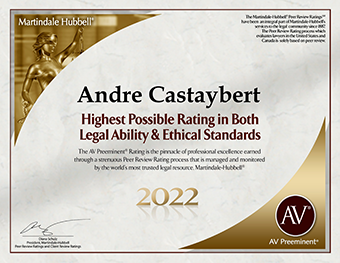June 22, 2023
On June 7, 2023, the New York State Senate passed Senate Bill 3100A prohibiting most non-compete agreements in employment contracts. Shortly after on June 20, 2023, the bill passed in the New York State Assembly. This Bill has not been officially enacted yet, but if it is signed by Governor Hochul, it will become law and have a significant effect on business practices and employment contracts.
Subsection 1 of the Bill defines a non-compete agreement as “any agreement, or clause contained in any agreement, between an employer and a covered individual that prohibits or restricts such covered individual from obtaining employment, after the conclusion of employment with the employer”. It further declares “every contract by which anyone is restrained from engaging in a lawful profession, trade, or business of any kind is to that extent void”.
In essence, this Bill prevents employers from restricting where a terminated employee can get employment after their employment ends. The New York State Senate stated the justifications for this Bill are:
- Non-compete agreements have a negative effect on the labor market and economy of New York State. They prevent workers from seeking employment at entities that may be a better fit, and they provide employers from providing more competitive benefits and wages because their workforce cannot seek employment elsewhere.
- In certain industries, they can have a detrimental impact on consumers.
- Recently, the federal government has announced an interest in banning such agreements nationwide via an FTC regulation, so this bill would codify such a ban in state law.
The scope of S 3100A is solely the restrictions of the non-compete after the conclusion of employment. Any non-compete agreements related to the present duties of an employee or independent contractor currently employed are still valid and enforceable. This bill does not affect non-solicitation agreements or non-disclosure agreements. Further, otherwise valid contracts will be enforced notwithstanding an unenforceable non-compete provision.
These changes will only take effect if Governor Hochul signs the Bill and will not retroactively apply to any previous non-compete agreement agreed upon prior to enactment.
While other states have similarly restricted the scope of non-compete agreements for employment contracts, New York could now become the fifth state to ban nearly all non-compete agreements for employees, following Minnesota, Oklahoma, North Dakota, and California.
To read the S 3100A Bill, click here.
To read how Castaybert PLLC can assist you with Employment Counseling and Disputes, Executive Separation and Severance, Trade Secret Protection, and Noncompetes click the respective link.








